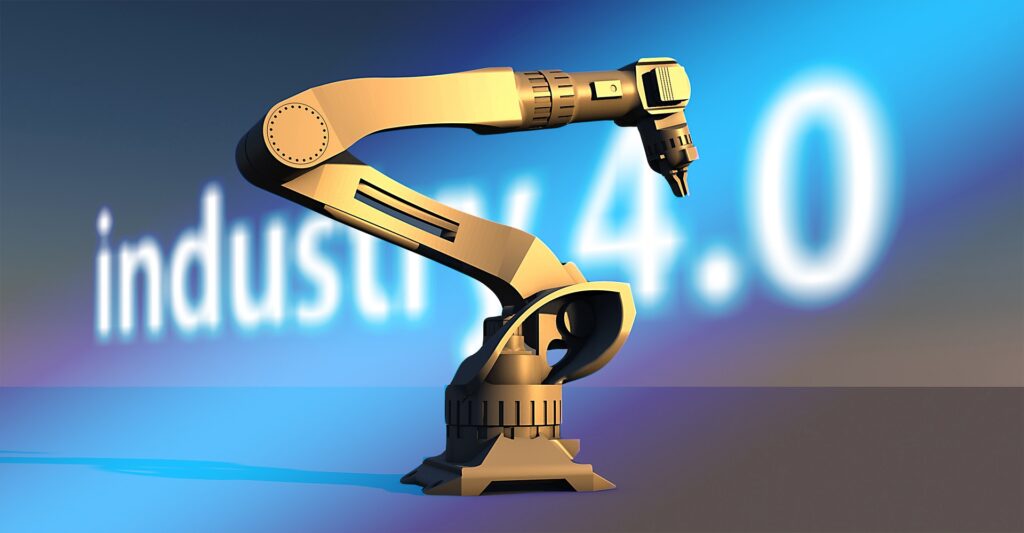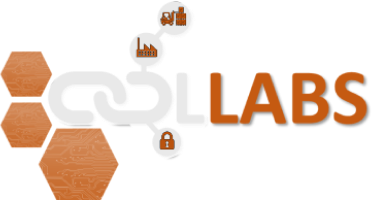Industrial automation is expanding at an increasing pace, where this surge of innovation is driven by recent advances in information and communication technologies facilitating a “phase transition” towards “Industry 4.0”.

Specifically, according to a recent study by the “Allied Market Research”, the global digital manufacturing market is expected to reach $1,370.3 billion by 2030, from $276.5 billion in 2020, registering a CAGR of 16.5% from 2021 to 2030 [1].
COLLABS and COVID-19 restrictions
Since 2019, the COVID-19 pandemic had a significant effect¹ on the growth of the digital manufacturing market. During the lockdown, COVID-19 has enabled the wide adoption of newer technologies and has forced us to find safer and smarter ways for operating smoothly and effectively in manufacturing industries. On the other hand, the market was hampered owing to limited manufacturing activities carried out due to lockdown.
COLLABS: Challenges and needs to be addressed
Despite the changes and improvements made during the COVID-19 pandemic in the manufacturing sector, there is still much to be done in order to meet the needs and the challenges in digital manufacturing. Some of the main needs and challenges that companies need to be considered are[2]:
- The huge investment that demands the smooth digital transition and transformation;
- To consider new business models in order to transform the way they interact with the customers, understand business cases, changing operations for manufacturers and how customers receive and engage with products;
- To be open to new approaches;
- To reorganize the processes to automate and integrate horizontal and vertical value chains;
- The lack of talented in-house workforce to meet the new upcoming manufacturing changes;
- Standardization contributions to ensure that the individual components are compatible and interoperable;
- Readily available and accessible data through the proper data management;
- Deal with competition;
- To implement end-to-end encryption to avoid vulnerability, phishing and various other attacks and to provide data security;
Coupling Industrial Internet of Things (IIoT) with Big Data analytics and Artificial Intelligence (AI) in the context of industrial automation is what will make industrial systems intelligent, enabling them to exchange information and operate remotely. However, the vision of future intelligent and autonomous manufacturing units is counterbalanced by exponential increase in security risks and attack surfaces that emerge as the production systems are increasingly connected. The manufacturing ecosystem lacks a thorough cyber intelligence solution that addresses the key IIoT-related cybersecurity challenges towards a full realization of collaborative manufacturing in the context of Industry 4.0.
What does COLLABS promise to achieve and in which way?
COLLABS develops, validates, demonstrates, and supports a comprehensive cyber-intelligence framework for resilient collaborative manufacturing systems to secure data exchange across the digital supply chain while providing a high degree of resilience, reliability, accountability and trustworthiness, and addressing threats prevention, detection, mitigation, and real-time response.
COLLABS achieves these goals by providing scientific and technological advances in IIoT-based digital collaboration and security in the context of Industry 4.0, including technologies on cyber-security and protection, secure multi-party computation and homomorphic encryption, (distributed) machine (deep) learning and anomaly detection, and distributed ledger technologies (blockchain) and smart contracts, and distributed remote software attestation, which is orchestrated and leaned towards the comprehensive cyber-intelligence framework for digital collaboration.
What is the contribution of the COLLABS project to the manufacturing sector and what are the expected results?
The existing solutions leave unaddressed important issues. COLLABS comes to fill these shortcomings and extends the state of the art, by providing a solution for issues related to collaborative manufacturing, distributed anomaly detection, distributed remote software attestation, cybersecurity, physical security, data security, data transformation and finally, trustable and secure IoT networks.
As result, COLLABS will ensure and facilitate a secure exploration of IIoT’s full potential in collaborative manufacturing environments and realize industrial and societal opportunities, by validating and demonstrating its framework on 3 real-world use cases coming from complementary Industry 4.0 manufacturing domains (e.g., aerospace, automotive and consumer electronics) and delivering an Industry 4.0 Experimentation Lab.
COLLABS, through its offered framework, intends to boost the effectiveness of the European Security Union in the domains of secure collaborative manufacturing, by offering high TRL solutions (TRL 6-7), and by ensuring business continuity and long-term sustainability, during and after the project lifetime.
The role of ITML within the COLLABS project
ITML will significantly enhance its current technical expertise and skills, as the company is leading the activities towards the design and implementation of the threat detection and mitigation services, the integration of the cybersecurity framework’s services as well as contributing to the delivery of machine learning-based functionalities of the COLLABS system. ITML in order to fulfil the aforementioned requirements intends to integrate three of its tools into the COLLABS project, Security Infusion and 3ACEs with DFB. Within COLLABS, Security Infusion will provide threat detection, mitigation and cybersecurity services. By utilizing Security Infusion in industrial environments, specifically in smart factories and in order to meet the requirements of these specific domains, ITML committed to accordingly develop and improve it by understanding the requirements of industrial end-users as well as to enhance its visualisation and monitoring features by integrating the tool in other modules. Within COLLABS, the integration of DFB constitutes the data integration layer and ITML aims to study the usability of this solution for future B2B purposes. Lastly, since 3ACEs sometimes suffer from the lack of data, ITML intends to use the large amounts of data that gains from the use case providers’ labs to further train its machine learning algorithms.
During the course of the COLLABS project, ITML will have the opportunity to not only expand the services offered by these tools, based on concrete real-world requirements but also evaluate them in realistic, collaborative industrial settings.

COLLABS project started in January 2020 and its duration is 36 months.
To find more about COLLABS and its 13 partners follow us on Twitter and connect with us on LinkedIn.

This project has received funding from the European Union’s Horizon 2020 Research and Innovation program under grant agreement No 871518.
[1] Digital Manufacturing Market by Component (Hardware, Software, and Services), Technology (Robotics, 3D Printing, Internet of Things (IoT), and Others), and Application (Automotive & Transportation, Aerospace & Defense, Consumer Electronics, Industrial Machinery, and Others): Global Opportunity Analysis and Industry Forecast, 2021–2030
[2] Gadre, Monika, and Aruna Deoskar. “Industry 4.0–digital transformation, challenges and benefits.” International Journal of Future Generation Communication and Networking 13.2 (2020): 139-149.